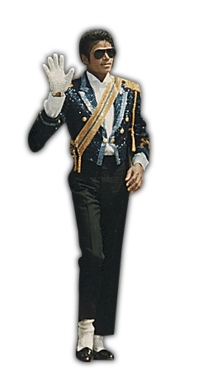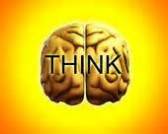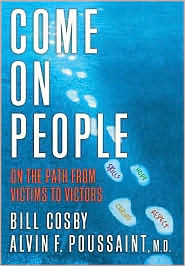
Jackson in good spirits
September is National Recovery Month!
And in light of Michael Jackson’s birthday observance, I thought this blog post would be both timely and appropriate.
Many times or more often than not, people take the plight of others for granted. There’s an old adage that’s probably been around since the frontier days when Indians still owned the territories on which their reservations stood—a long time before any of us were alive. But I digress.
The saying goes something to the affect: You can’t know a man until you’ve walked a mile in his shoes. Well, no expression could be truer in this case. If we stop judging or even trying to sympathize with others, maybe then we’d give ourselves a chance to really understand that it’s the ability to empathize with another person that ultimately helps you (and I) to better understand him (or her).
Jackson may be viewed unsympathetically as one more famous troubled “addict”—or with sympathy as an overly driven creative genius who simply went too far. And either depiction would be accurate, as each aptly described the Late “King of Pop.” Jackson was driven to a fault and, I believe deeply burdened. He wrote a little known song much less popular than his chart-topping hits, titled “My Childhood,” about a boy who never had a childhood, which in retrospect seems very introspective. One thing’s for certain, he worked hard at perfecting his musical gift from a youngster through harsh discipline and little boyhood playtime. This all played a role in MJ becoming the tragic figure we saw in his troubled adulthood.
What I’m getting at is the question of what brought him to the point of dying senselessly at the hands of a negligent, so-called “celebrity doctor” hanger-on—one Conrad Murray? This is the real issue that no one’s bothered to look at. Why did Jackson go to such lengths to find a “concierge” physician to be bankrolled into keeping him on a steady stream of a dangerously potent anesthetic that by all accounts should not have been administered outside of a hospital setting?
Murray setup a makeshift hospital room in the pop icon’s temporary residence, complete with an IV hookup and oxygen tanks to keep him “doped up.” He knew what he was doing would be ill-advised by fellow peers in the medical community. A responsible “ethical” doctor would have gotten Jackson what he desperately needed most: the aid of a sleep disorder specialist and a drug counselor.
People in general were ill informed and rushed to judgment in simply labeling Jackson a drug addict, when they should’ve been looking with empathy beyond labels to the underlying cause of his dependence on Propofol as a method of sleep inducement. We have only Murray’s summation of events leading up to his discovery that Jackson had died, the nearly inaudible voice recording he presented in court of the superstar entertainer slurring his speech, along with the toxicology report. According to Murray, Jackson begged him for the powerful drug in order to sleep.
There’s a distinct difference between someone being fed a legal substance by a working, board-certified medical professional (at the time), who obtained a pre-surgery hospital drug under false means, and an individual who cops illegal narcotics to get high. Although Jackson was put into a coma rather than a euphoric high derived from consuming drugs, nonetheless, it was still a drug-induced state he was put in. “Addict” conjures up negative connotations rather than an empathetic image of someone that may be a substance abuser like Jackson and many others, who are dependent on prescription and/or over-the-counter drugs.
The bottom line is that a man should not have to die trying to get to sleep—a slumber from which Jackson, sadly, never awoke. That’s the true tragedy of it all. It’s difficult to expect others to comprehend, though. It took some contemplation. Then it dawned on me after a chat with a neighbor about Jackson on the occasion of what would have been the star’s 55th birthday (Aug. 29), which was being commemorated in New York City. Following the conversation I thought it was more enlightening than I’d initially realized; I hadn’t walked in Jackson’s shoes. I had suffered with insomnia but had never been dependent on drugs, pills or medication of any kind. So, could I empathize? Yes, because you have to use empathy to understand how substance abusers become “addicted.”
Before then, in my infinite wisdom based on everyday common sense, I merely surmised that a global entertainer who worked as tirelessly as Jackson did night after night in preparation for his highly anticipated concert dates (captured in the docu-film “This is It”), surely should have fallen out from pure exhaustion. Yet, it was not that easy for Jackson, even though it might seem like a reasonable conclusion to most of us, including myself.
This friend noted squarely “not if you’ve been taking something for so long that you need stronger and stronger [dosages] in order for it to produce the same effect as it did before.” Another revelation. That’s right! I thought. Otherwise you would expect any normal human being to have not just fallen asleep, but to literally crash after such long hours of grueling, physically taxing rehearsals. However, Jackson was considered “the greatest performer of our time.” The footage showed that he was hands-on, involved, a perfectionist and taskmaster, indeed a creative genius of extreme proportions on the cusp of an imminent comeback. To be able to pull that off he would have to get some sleep.
Murray needed only to show his business card and of course keep a constant supply of Propofol on tap to pull off his newly acquired role as Jackson’s personal doctor to serve as a babe magnet and up his cachet with the various ladies he began courting. He was due to receive a monthly retainer of $150,000, stipulated to be paid to him whether or not Jackson’s shows went on. He had a built-in insurance policy. What did he have to lose? He would get his money regardless. Jackson was at the mercy of Murray, as he detailed MJ’s dependence on anesthesia that he dispensed in large quantities to provide his patient with his nightly/daily” fix”.

MJ
Now Jackson is no longer among the living and the doc for-hire is reportedly being released early for good behavior. How is that just?
Share some of your thoughts on recovery. Post a comment below.
Tags: Conrad Murray, Michael Jackson, MJ Dr. MJ Death trial, national Recovery Month, Propofol







Public Apology to Tom Hanks and Wife Rita
31 MarOprah and beau Stedman Graham
Continue reading →